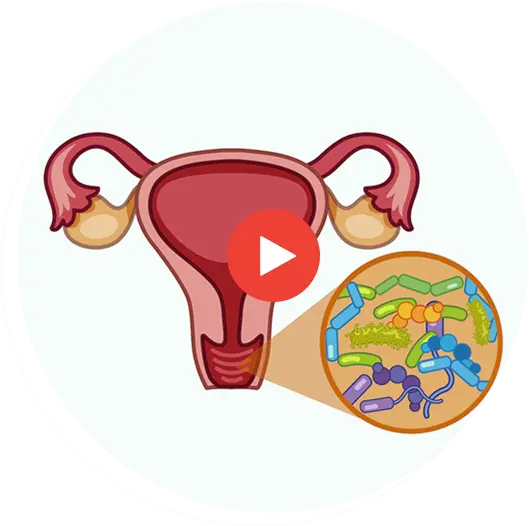

TELMDCARE
What Is A Vaginal
Yeast Infection?
Also called vaginal candidiasis, a vaginal yeast infection is a type of fungal infection that affects the vagina and vulva. The infection is a result of the overgrowth of the fungus Candida. The tissues in a vagina already contain some bacteria and fungus cells, but when their quantity increases, it can lead to a vaginal yeast infection. If you have any questions about this fungal infection, consult our telemedicine doctors for vaginal yeast infection.
Book an Appointment for Only
TELMDCARE
Is covered by many popular
insurance plans

TELMDCARE
Symptoms of a Vaginal Yeast Infection
A vaginal yeast infection has several symptoms, and the symptoms vary based on the intensity of the infection. However, some common symptoms include the following:
So, if you notice any of these signs around your vaginal area, consult our virtual doctor for vaginal yeast infection treatment immediately.
What Causes a
Vaginal Yeast Infection?
Even though Candida is a naturally-occurring fungus in the vaginal area, some bacteria keep it in control.
Risk Factors That Contribute
to Vaginal Yeast Infection
Besides the usual causes, certain risk factors also contribute to your chances of getting a vaginal yeast infection. These risk factors include:
TELMDCARE
Yeast Infection in Men
Even though vaginal yeast infections are more common in women, men can also get yeast infections, called penile yeast infections. Men usually get a yeast infection after having unprotected sexual intercourse with a women having a vaginal yeast infection.
To stay safe, it’s important to wear condoms when having sexual intercourse. Regular bathing and keeping the penile area dry can also keep the penis safe from a yeast infection.
Yeast Infection in Babies
Yeast infection can also affect babies. In most cases, a severe diaper rash can lead to yeast overgrowth, resulting in a penile or vaginal yeast infection. Additionally, women that have candida fungus in their breast area can also transfer a yeast infection to their babies through breastfeeding. Yeast infections in babies can lead to severe problems if left untreated.
TELMDCARE
As Seen On


TELMEDCARE
What we treat
We treat a variety of acute and chronic conditions and provide expert medical advice and guidance for our patients.
Read More
TELMDCARE
How to Prevent a
Vaginal Yeast Infection?
Since the risk of getting a vaginal infection is high in menstruating and pregnant women, preventing a vaginal yeast infection is challenging. However, virtual doctors for vaginal yeast infections have suggested some methods you can try to lower your odds.

How Can a Vaginal
Yeast Infection Be Diagnosed?
A vaginal yeast infection is usually diagnosed through a pelvic exam. This pelvic exam includes a checkup of your pelvic region, including your vaginal walls, vulva, and the cervix. In many cases, you might also have to get some lab tests for proper diagnosis. Cells from your vulva are collected and are tested in a laboratory. Our telemedicine doctors for vaginal yeast infections will help you diagnose your infection in the first place.
Medication services available 24/7 for adults and kids (3+)
Top quality, board-certified doctors
No insurance needed
Same-day prescriptions available*
*Prescriptions provided at doctor’s discretion.
Why Vaginal Yeast Infections
Are Common During Pregnancy?
Studies have suggested that around 20-30% of pregnant women get vaginal yeast infections. These infections commonly occur around the second-trimester of pregnancy.
Impact of a Vaginal Yeast
Infection on Menstrual Cycle
Even though vaginal yeast infections don’t delay your periods, getting a period while dealing with a vaginal yeast infection can be highly uncomfortable.
TELMDCARE
Vaginal Yeast Infection Treatment
Our telemedicine doctor for vaginal yeast infections can prescribe you the correct treatment plan based on the severity of your symptoms. Some common treatments for vaginal yeast infections include:
- A 16-day course of an anti-fungal cream or ointment
- A 2-weeks regimen of oral, anti-fungal medicines
On the other hand, if your symptoms are too severe or you have gotten multiple vaginal yeast infections in a year, your online doctor for vaginal yeast infections might prescribe you to use an anti-fungal medication for 6 months. You might also have to use an anti-fungal if you’re pregnant, have diabetes, HIV, or have a weak immune system. Additionally, you need to follow up with your online doctor for vaginal yeast infections to ensure that your treatment has worked properly.


TELMDCARE
Consequences of an Untreated
Vaginal Yeast Infection
If left untreated, a vaginal yeast infection can have the following consequences on a person’s body.
Like most diseases, a vaginal yeast infection should be diagnosed and treated immediately. Patients need to refrain from taking a vaginal yeast infection lightly and should consult a virtual doctor for vaginal yeast infections treatment immediately.

Consulting a Virtual Doctor for
Vaginal Yeast Infection Treatment
If you notice your vagina itching or getting swollen, you need to consult our online doctors for vaginal yeast infections immediately. We allow you to get diagnosed from the comfort of your home and provide effective medications. Additionally, we only charge a flat-fee of $43. You can also get vaginal yeast infection treatment online if you don’t have a medical insurance.
Reach out to us to book an appointment with our telemedicine doctor for vaginal yeast infections. If you don’t want to talk to a doctor or audio or video call, you can get chat consultation services. We also offer free follow-up services to ensure that our prescribed medicine is working properly.
TELMDCARE
Sign Up
Sign up and book an appointment with our specialists to get vaginal yeast treatment online today!
$43 SIGN UP
TELMDCARE
Vaginal Yeast Infection FAQs
Vaginal yeast infections are really common among women. Around 75% of women get a vaginal yeast infection at some point in their life. Additionally, most women get a vaginal yeast infection twice in their life. Constant hormonal changes and natural events like pregnancy and menstrual cycles cause vaginal yeast infections, making them common. But it’s essential to get vaginal yeast infection treatment online to prevent it from getting severe.
Even though some people may get a vaginal yeast infection from unprotected sexual intercourse, it’s a rare occurrence. Telemedicine doctors for vaginal yeast infections agree that most women get these infections from hormonal changes. Additionally, even women who have never had sexual intercourse can get a vaginal yeast infection. All the evidence points to the fact that vaginal yeast infections aren’t STDs.
Recurring vaginal infections can be a sign of any underlying medical problem. If your infection keeps returning, it’s essential to consult an online doctor for vaginal yeast infection immediately. The doctors can prescribe you more heavy medications or aggressive treatment methods based on your condition.
Even though vaginal yeast infections aren’t considered STDs, there’s a slight chance of it transferring to another person during unprotected sex, especially during oral sex. Additionally, breastfeeding mothers might transfer a yeast infection to their babies. But in most cases, yeast infections aren’t contagious. You can’t transfer a yeast infection through physical interaction or proximity. However, if you’re worried about your partner or baby getting your yeast infection, consult a virtual doctor for vaginal yeast infection treatment instantly.
Women of all ages can get vaginal yeast infections. But online doctors for vaginal yeast infections agree that these infections mostly occur in menstruating women. Girls that haven’t experienced puberty yet and postmenopausal women have low chances of getting a vaginal yeast infection. But, in some cases, women have reported having vaginal yeast infections during and after menopause.



